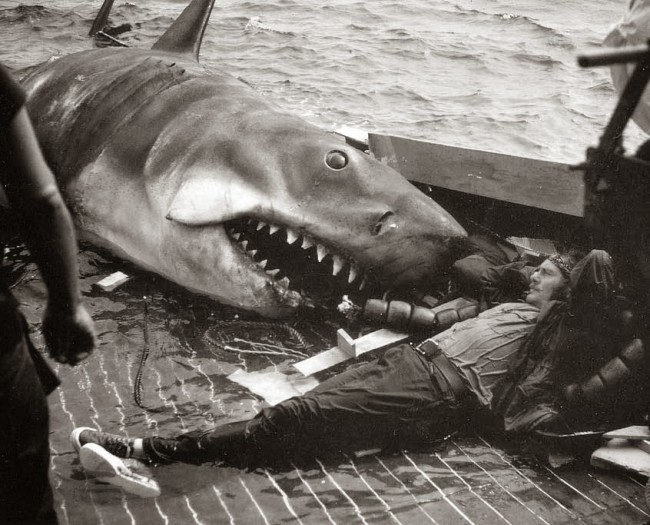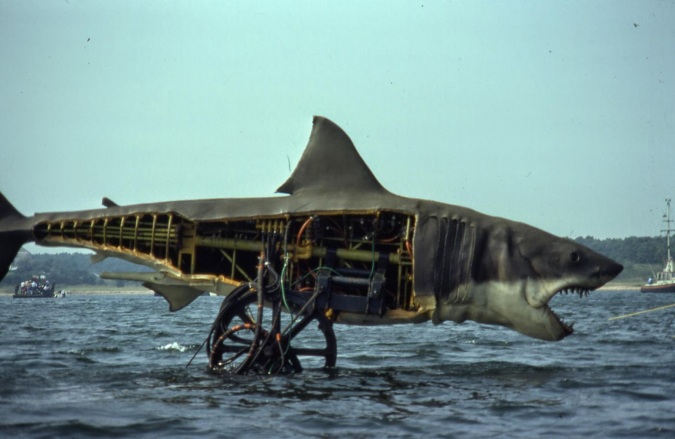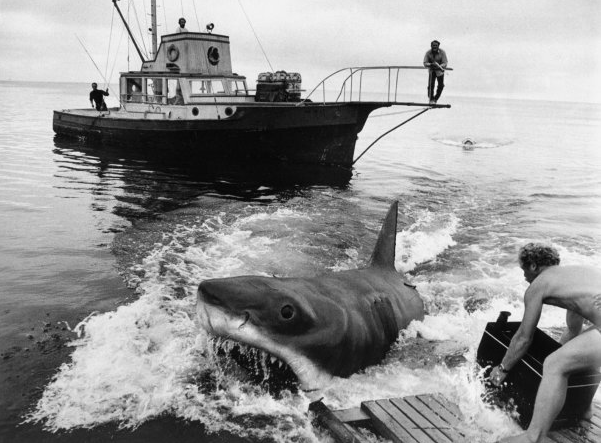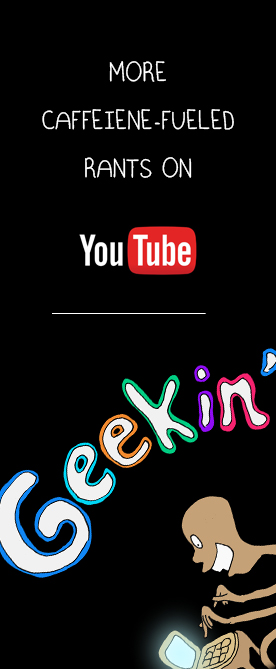By Mikhail Karadimov July 28th, 2015
2015.
Mark it, people: it’s the 40th-anniversary of what some may consider Steven Spielberg’s finest: Jaws.
Forty years have passed since Bruce broke waters and records alike and frightened everyone out of their local pools, their beaches, even their bath tubs. Irrational fears took root after the summer of ’75. Nonsensical. Illogical. I remember when I was ten, or maybe even fourteen, I, too, couldn’t swim too far from the pool’s ladder without feeling a tickle at my toes, the imaginary displacement of water beneath my feet, the pull of power, the brevity, the danger. My imagination swore that a shark—a great white of epic proportions—circled the bottom of the pool, sniffing for sweat, for nerves. Any body of water—artificial or otherwise—that was deep enough to submerge my head, jolted my system with panic.
Anyway, to get into the spirit of things, to celebrate Jaws and its 40 years, I decided to revisit an old behind-the-scenes documentary that I had watched as a kid on a lazy Saturday afternoon back in the summer of ‘05. They were showing it on The Entertainment Channel or E! or whatever it was called back then, and it featured most of the principle players involved—unless time or fate had already taken them (RIP: Shaw and Scheider). The documentary shows Spielberg, Dreyfuss, Zanuck, and a bunch of other candid personalities speaking freely, divulging all kinds of gossip, hardships, and other frustrations.
The documentary was called The True Hollywood Story: Jaws.
By now, most people have familiarized themselves with the Jaws mythos, with the tragedy, the plagues that tore at Spielberg’s production, as well as his and the studio’s confidence; everyone knows of Bruce the mechanical shark and how it refused to operate in salt water, how it clunked out at the most inopportune moments; how the ocean wreaked havoc on shot continuity and dragged anchored boats in and out of frame; how the production was several complications away from Hollywood punch-line status. Spielberg’s career was on the line. It was at a tipping point, a slight ocean breeze in either direction, could topple his entire future, and along with him his future classics: ET (82),Schindler’s List (93), Jurassic Park (93), Close Encounters of the Third Kind(77), etc.
As most people will tell you, Bruce the mechanical shark almost cost Spielberg the movie. But I don’t think that’s the case. I think the shark fucking up every time salt sizzled its wires, its gears, its levers was a miracle designed by the Movie Gods to bide young Spielberg with further reprieve—a circuitous way of imbuing the man with inspiration—(sure, heart ache and stress, too, but mostly inspiration). If that shark worked, Spielberg would have most likely released a subpar film where the shark would reveal itself, its fin, its tail, even its conical snout, in the very first scene, which Spielberg himself has admitted in countless interviews. The film would be pure spectacle, rather than a Hitchcockian game of taunting suggestion that would. Its effects would fizzle rather than linger. The film compels us because of its obstructive nature, the way it plays the ocean like a blank canvas, terrifying us with intimation rather than exhibition.
If Bruce hadn’t broken down and pressured Spielberg into thinking of different ways to scare his audience, to think to himself “What would Hitchcock do?” and represent the shark through hints and shadows and silhouettes—IE: yellow barrels and sloshing, flapping blonds and water-leveled shots that obscure the frame with the threat of a lurking, hungry shark amidst droves of happy-go-lucky swimmers—if Spielberg’s back wasn’t in a corner and the shark worked from day one, would we have the same Spielberg we have today? Or would we have a lesser Spielberg, one who never really got another chance to wow us, to recover from the humiliation? What if Spielberg made the spectacle he initially set out to shoot and the movie was released in theaters without much fuss?
Most importantly: Would Spielberg still be an effective filmmaker today if he weren’t coerced to act! by the less-than-stellar conditions thrust upon him by the Atlantic?
It’s possible.
Lets say, for the sake of argument—and fanboy speculation—that Bruce did work, and the film came out and flopped and severed all of Spielberg’s ties with the studio system. Sure, maybe with enough films, with enough practice Spielberg might have eventually caught up with his potential, would have come back around to shoot fare as exhilarating as Indiana Jones (81-08) or Catch Me if You Can (02). But it might have taken longer. He might have had to learn all the tricks he learned on Jaws from his other films, low budget films, independent films (since I doubt a studio would ever touch him again after a failure the size of Jaws). Without Jaws, without the crash course in off-the-cuff filmmaking, the process of watching Spielberg blossom into one of America’s finest and most entertaining directors might have been prolonged, the trajectory of his filmography might have been stilted with empty promise—at least for a spell.
I’ve said it once and I’ll say it again: Fear fuels the process.
If you’re a director who knows no fear, who never feels startled enough to have to adapt on set and re-work your script, your scenes, your performances, your…everything! then chances are you’re not doing your job right. And even though I’ve cast much doubt on the success of Spielberg’s hypothetical “alternate universe” career where Bruce functions smoothly, I do it in order to illustrate just how fickle film can sometimes be, and how unpredictable and resilient and vigilant the best directors are.
After all, it was Spielberg’s idea to shoot the movie on the very element that nearly destroyed his production: the ocean. Rather than film the climactic scenes of Jaws on a studio back lot, in some innocuous-looking tank, or on a lake where the waters reflect like glass, calm and serene, without the slightest hint of violence, Spielberg nutted up and requested the choppy texture that only the Atlantic could provide. So maybe this whole essay can be rendered moot. If Spielberg’s the one who shot himself in the foot, who created the very obstacle that trashed his shark, his Bruce, then maybe it was all meant to be and, like any great director, Spielberg was the cause and solution of his own hang ups, his own peculiar requests, and maybe there’s a bit of the divine in him, too, and he could subconsciously foresee the tribulations of his shoot and how they would come to cause him great pain and the audience great glee.
Who knows?!
Either way, looking back at Jaws and its forty years, at its ever-growing legacy, its always important to realize just how close the entire operation came to annihilation, and how Steven Spielberg, given a different twist of fate, might have prematurely gone out to pasture. If Jaws had failed upon its release, given its budget and its overextended shooting schedule, Spielberg would have spent much time convincing the system to give him another shot.









